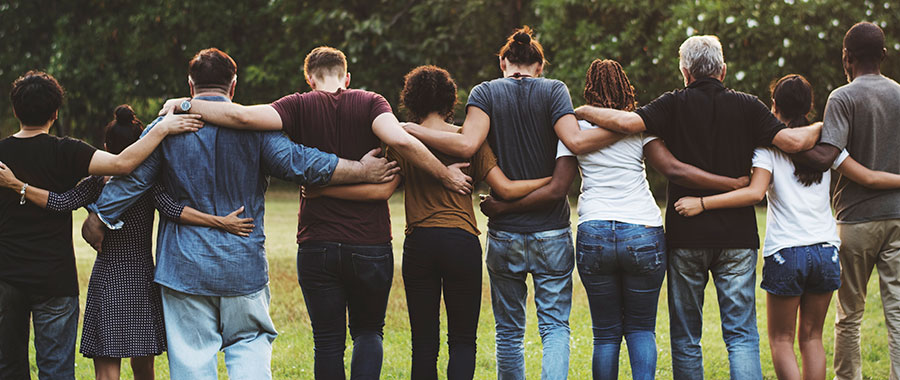In contemporary discourse, the act of voting often occupies a place of central importance as a symbol of civic engagement and democratic participation. Yet, amidst the fervor surrounding election cycles, a pertinent question emerges: Is voting enough? This inquiry delves into the essence of Bahá’í teachings, which espouse a holistic approach to societal betterment. The Bahá’í Faith advocates not merely for the act of voting but for a broader understanding of individual responsibility within the framework of community engagement. This discourse examines various dimensions of societal improvement, expanding the notion of civic duty beyond the ballot box.
To commence, it is essential to appreciate the distinction between electoral participation and the notion of collective advancement. While voting is undeniably an important component of democratic processes, Bahá’í teachings assert that it constitutes merely one facet of a multifaceted approach to societal improvement. The philosophy encourages individuals to engage in actions that foster unity and alleviate societal disparities. Thus, the practice of voting should be complemented by active participation in community endeavors, civic education, and dialogues that promote social justice.
Moreover, the Bahá’í Faith underscores the importance of informed decision-making. Voters are urged not only to exercise their right but also to seek knowledge regarding the issues at hand, the platforms of candidates, and the implications of proposed legislation. This emphasis on education fosters an electorate that is equipped to make judicious choices, thereby enhancing the overall quality of governance. It is imperative to cultivate an informed citizenry, as ignorance can lead to polarization and conflict, undermining the very ethos of democracy.
Furthermore, the Bahá’í teachings encourage a shift from individualism to collectivism. The belief is rooted in the principle that the welfare of an individual is intimately connected to the welfare of the community. Each person’s actions impact the broader society, and as such, there is a moral imperative to transcend self-interest. This communal ethos challenges the notion that personal success can be achieved in isolation. Instead, Bahá’ís are called to contribute to communal prosperity through various means, including volunteering, supporting local initiatives, and advocating for marginalized groups.
As one contemplates the notion of contribution, it becomes evident that societal improvement is often cultivated through grassroots movements. These efforts often arise from the necessity to address local concerns that are overlooked by larger political frameworks. The Bahá’í approach emphasizes the value of grassroots activism, which can instigate profound changes within communities. By participating in local initiatives—such as community development projects or environmental sustainability programs—individuals can enact tangible improvements that resonate significantly within their locales.
Moreover, the Bahá’í community embraces the concept of consultation as a means for decision-making. This process involves the collective deliberation of diverse perspectives to arrive at conclusions that reflect the collective will of the community. Through consultation, individuals learn to navigate differences constructively. This practice fosters an environment of mutual respect and collaboration, cultivating a culture of inclusivity and shared responsibility. By adopting this approach in community engagement, individuals promote a model of unity where every voice holds value, transcending the often divisive nature of political discourse.
Another imperative avenue for societal improvement lies in the realm of education. The Bahá’í teachings extol the virtue of education as a transformative tool not only for individuals but for societies at large. An educated populace is better equipped to challenge injustices, innovate solutions to contemporary issues, and engage in constructive dialogue. The promotion of universal education, particularly for girls and women, is of paramount importance, as it empowers individuals to contribute more effectively to society. Investing in education and lifelong learning fosters the development of critical thinkers who can navigate complex social, political, and economic landscapes.
In addition to education, the Bahá’í Faith encourages fostering a spirit of service. Individuals are called to develop qualities such as altruism, compassion, and a commitment to the well-being of others. Service can take many forms; from mentoring youth to participating in humanitarian efforts, each action contributes to a larger tapestry of societal improvement. When individuals adopt an ethos of service, they cultivate a sense of belonging and interconnectedness, strengthening the social fabric and enabling communities to thrive collectively.
Furthermore, the significance of ethical leadership is underscored within Bahá’í teachings. For leaders—both elected officials and community organizers—there exists a profound responsibility to uphold principles of justice, integrity, and accountability. Ethical leadership inspires trust and cooperation, fostering an environment where citizens feel empowered to engage meaningfully in both governance and communal efforts. Policies instigated by ethical leaders tend to prioritize the welfare of the many over the interests of a select few, ultimately serving the greater good.
In conclusion, while voting represents a critical engagement mechanism within democratic systems, the Bahá’í teachings advocate for a more expansive understanding of communal responsibility. True societal improvement necessitates a harmonious interplay of informed voting, grassroots activism, education, consultation, service, and ethical leadership. As individuals contemplate their role in society, they are implored to consider how their actions extend beyond the confines of electoral participation. It is through a robust, multifaceted approach that communities can realize their fullest potential, creating a world marked by unity, justice, and profound collective advancement.
